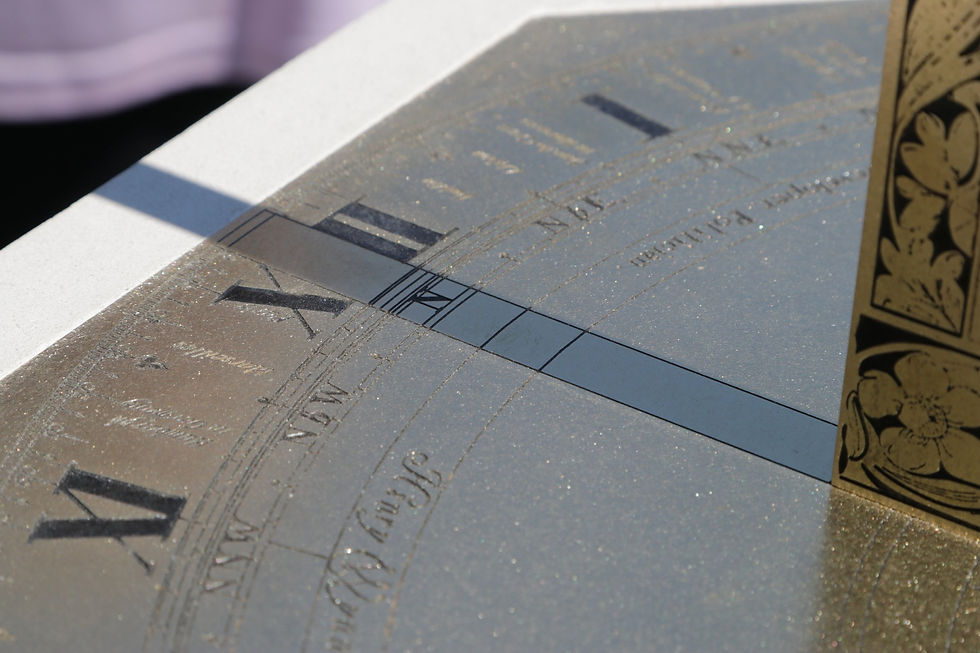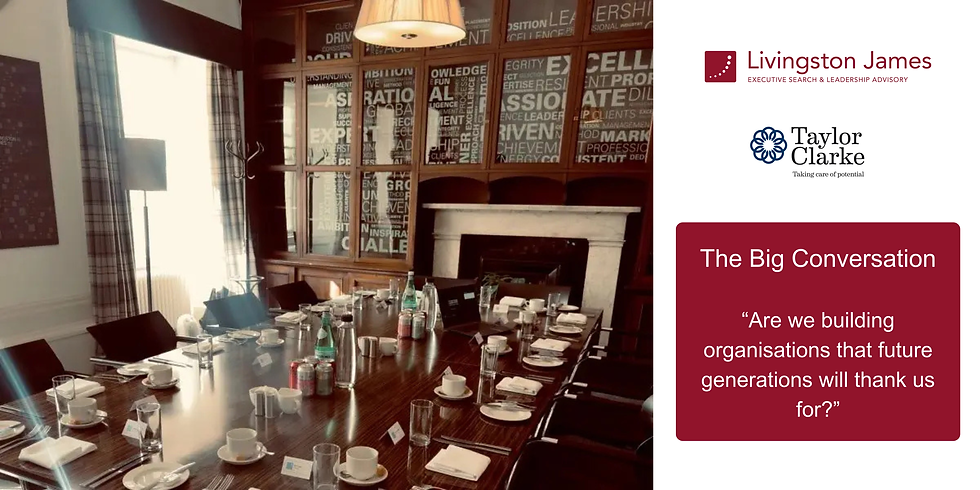How to Develop a Healthier Relationship with Time
- Aug 27, 2019
- 3 min read
By Susan Grandfield, Consultant & Coach
There was a time when time didn’t exist.
And yet, time has become omnipresent. It influences every aspect of our lives and often dictates what we do, when and how we do it and the quality of attention we pay to what we are doing. Many of us feel enslaved by time, frustrated by its control over us or simply impotent towards it.

In my 20 years as a coach, trainer and facilitator one enduring challenge has kept emerging with my clients - how to manage time. The increasing pace of work and the drive to do more with less have contributed to a feeling of time scarcity, sacrifice and lack of fulfilment. The knock-on effect on people's mental and physical health is staggering. A YouGov poll in 2018 {Source} found that 74% of people feel so stressed that they have become overwhelmed and unable to cope.
For decades organisations have offered people the solution of time management training. Yet, this approach does not seem to have mitigated the crisis we find ourselves in today.
Time has transformed from being a way to describe the natural flow of life into a means by which activities and actions can be controlled, measured and commodified. This shift didn’t happen by itself, it happened through centuries of social construction. Decisions by our ancestors to define and name units of time, to add a monetary value to those units, to adhere to a commonly agreed central time (Coordinated Universal Time) and to create a structured working day based on time have brought us to the point we find ourselves at today.
But where we find ourselves today is at the start of a major time revolution.
I say we are at the start because even with the increase in flexible working, 24 hour retail and on-demand entertainment there is still a large proportion of our daily life which is defined by the old structures.
We still think in a linear way about time. When we talk about “flexible working” generally that means working the same number of hours but in a different format. We are still focused on the number of hours we work and concerned with what that leaves for all the other things we want to do in life. In effect we are really just rearranging the same pieces on a different chess board.
The Greeks had two words to describe time - Chronos and Kairos. Chronos is where the word chronological comes from and is the linear view of time. Kairos is about being in the moment, making the most of the experience without being constrained by a sense of past, present or future.
What if we were to live our more of our lives in Kairos time?
Time is so much more dynamic than the illusion presented by the hands on a clock. The prevailing paradigm of time is restrictive but by opening up to a new paradigm we can create a different experience.
Focusing on our experience, moment by moment, enables us to make real time choices about where our energy and attention is based placed. When we are stuck in the old paradigm of time we get caught up in autopilot and become so focused on the end goal that we miss what is going on around us. When we become more attuned to how we are (physically, mentally, emotionally) and how others around us are gives us so much more valuable information on which to make the right decisions at the right time rather than carrying on blindly simply to reach a deadline, complete a task or be seen to be busy.
The key to developing a healthier, more effective relationship with time is creating balance between structure and fluidity. The most successful people in life and business are the ones who get things done but are able to flex and adapt to the constantly changing landscape. We can only achieve the right balance when we slow down and really pay attention.
The quality of our relationships and our work dramatically improves when we pay attention to our experience. Once you open up to fully experiencing what is happening as it happens you will find that you are able to create just enough structure in your day to ensure you achieve your priorities and in and around those you allow space for things to change, adapt and flow.
It is time for a change in how we relate to time. So, are you prepared to make a change?
If you would like to discuss this topic further, please contact jade@taylorclarke.co.uk



